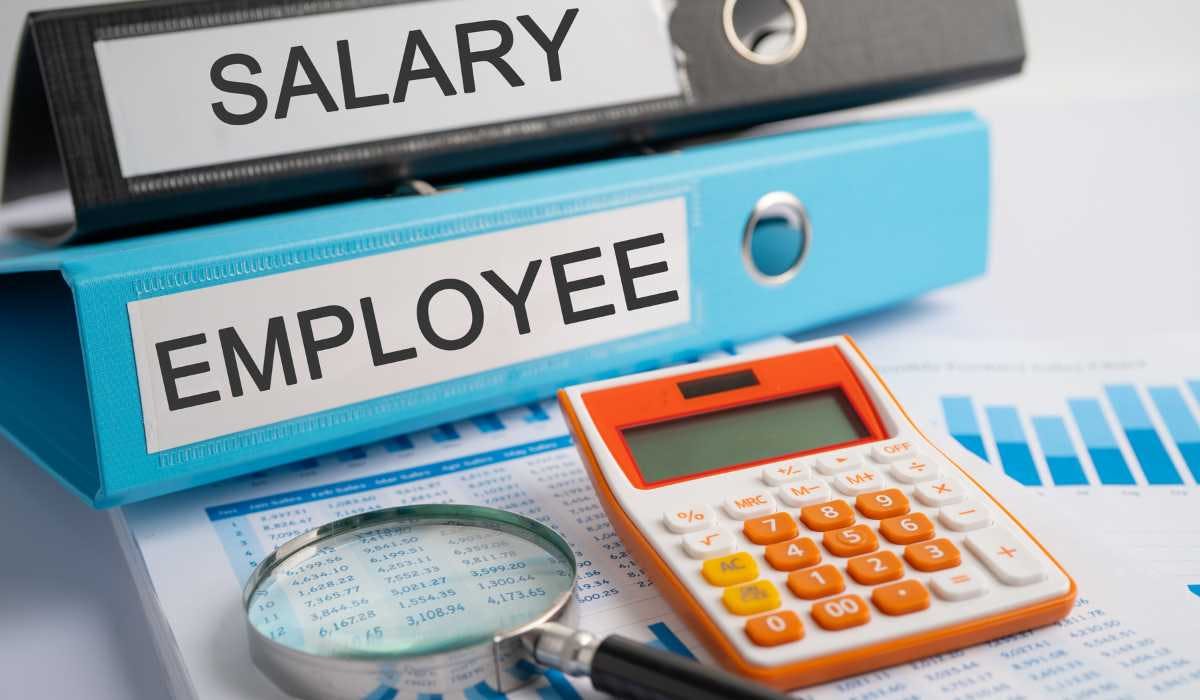- Register Your Business
- Get Employer IDs
- Set Up Employee Benefits
- Run Payroll:
- Collect employee info (bank details, tax info).
- Calculate salaries and deductions (taxes, MPF).
- Use payroll software or a service for efficiency.
- Pay employees on time via bank transfer.
- Keep Records
- File Taxes
Hong Kong is one of the fastest-growing financial hubs in the world and the 7th largest trading entity.
Companies see various benefits expanding to Hong Kong with its investment-friendly climate, limited government intervention, and a favorable tax system.
However, Hong Kong's payroll management can seem quite complicated, especially for those unfamiliar with the territory's employment laws and tax regulations. Understanding these complexities is essential to handle payroll processes correctly in Hong Kong and follow the rules.
This is why many companies consider outsourcing payroll services. The payroll services cost around HK$60 to HK$120 per employee monthly.
So, how should companies approach payroll (Hong Kong)?
What are the main challenges, and how can they be overcome?
Employment Law in Hong Kong
The Employment Ordinance seems to be the greatest guide in Hong Kong when it comes to the different types of employment and the minimum entitlements of every employee.
The two types of employment contracts in Hong Kong are the employment contract and the continuous employment contract.
Employees are considered to be on a continuous employment contract if they work 18 hours a week for more than four weeks for the employer.
Such a contract guarantees more rights to the employee.
Employers must also inform the Inland Revenue Department (IRD) of any new hires within three months from when they begin employment by the employer.
Employers are also required to keep records of their employee's wages and all payroll records for the past seven years.
Statutory Employee Leaves
These entitlements include severance payment/long service payment, paid sick leave, paid annual leave, maternity leave pay, and paternity leave, to name a few employee benefits.
Sickness Leave
Employees accrue paid sick leave under a continuous contract. During the first 12 months of employment, they accrue 2 days per completed month and increase to 4 days per completed month after 12 months. The maximum accumulation is 120 days.
The pay rate for paid sickness days is 80% of the average daily wages earned in the preceding 12 months.
To receive sickness allowance, employees must provide a medical certificate and have sufficient accumulated sick leave days.
Maternity Leave
Pregnant employees are entitled to 10 weeks of paid maternity leave.
A pregnant employee can also use sickness leave for pregnancy-related illness on top of scheduled maternity leave, but a medical certificate is required.
Paternity Leave
There is no mandated paternity leave for male employees in Hong Kong. However, some employers may offer paternity leave pay as part of their benefits package.
Annual Leave
Employees are entitled to at least 7 days of annual leave per year. In some companies, the number of annual leave days may increase with longer service.
Statutory Holidays
Employees who qualify for paid statutory holidays must have been employed under a continuous contract for at least 3 months and be in a continuous contract.

Compensation and Working Hours
Compensation packages in Hong Kong are extremely flexible and are stipulated in the employment contract.
The employment contract also stipulates work hours and days required of the employee.
While a typical working week usually lasts from 9 am to 6 pm, Monday to Friday, there are no statutory working hours.
The Employment Ordinance only prescribes a minimum of 1 rest day in a period of 7 days.
Furthermore, employees can be compensated in many ways, from a salary to a range of benefits.
Overtime Pay
While Hong Kong's local labor laws don't mandate overtime work or payment, the employer is legally bound to provide overtime pay if an employment contract offers overtime pay. Failing to do so can result in fines, similar to withholding regular wages.
Overtime pay is treated just like regular pay and is legally protected. When calculating employee entitlements, any offered overtime pay should also be factored in.
There are no limitations to the way employers can compensate their employees.
However, employers must pay their wages by the end of the last day of the wage period.
If employers take seven days longer than the last day, they must pay interest on the delayed wages or face legal reprimands.
Tax
Hong Kong's tax system operates differently for businesses and employees compared to some other countries.
Businesses in Hong Kong pay a corporate tax rate of 16.5% on profits earned within Hong Kong.
There's a difference between corporate tax and employee income tax. Unlike many other places, Hong Kong does not withhold income tax at source via payroll throughout the year, and employees are responsible for filing and paying their income taxes directly to the Inland Revenue Department.
Employee Departure and Departure Tax
When a high-income earner plans to leave Hong Kong permanently, the departure tax applies. This tax is calculated progressively based on their income.
Employers are required to notify the IRD one month before an employee's intended departure.
Upon receiving the notification, the IRD will withhold the employee’s salary or other payments due to the employee. This action secures the potential departure tax liability before the employee leaves.
The IRD will issue a "letter of release" once the departure tax is settled. The employer can only release the withheld payments to the departing employee after receiving this letter.
Social Security
All employees and employers in Hong Kong must contribute to the Mandatory Provident Fund (MPF), a pension fund put in place by the Hong Kong government.
The MPF applies to all employees in Hong Kong who have a contract of employment of more than 60 days and all self-employed people between the ages of 18 and 65.
Additionally, certain exemptions exist, such as foreign citizens only working in Hong Kong for less than 13 months.
Both the employer and the employee must contribute 5% of the employee's relative income subject to minimum and maximum relative income levels.
For example, for an employee paid every month, a minimum of $7,100 up to a maximum of $30,000 must be contributed to the MPF.
Learn more about paying your employee's MPF in our next blog.
Reporting
Reporting is an extremely important aspect of payroll and is required both on a monthly and yearly basis.
On a monthly basis, a remittance statement must be submitted on the 10th of each month.
This can be submitted both electronically and manually.
The Mandatory Provident Fund Payment is also required on the 10th of each month.
In addition, at the end of every tax year, forms BIR56A and IR56B must be submitted.
These are essentially the annual returns that the employer must submit that report employee remuneration and pensions.
Setting Up a Business In Hong Kong
Haven't quite opened your business in Hong Kong yet?
You can set up a business in Hong Kong through the following ways:
- A representative office
- A branch office
- A registered subsidiary company
Registering a company and establishing a legal entity in Hong Kong is a very simple process.
All applications for company incorporation and business registration alongside their respective fees are available online and processed within an hour.
A company does not have to pay employees through an in-country bank account.
When it comes to paying employees, companies are more than welcome to make payments using bank transfers.
These payments may, however, take longer as international transfers can take up to 7 days.
However, companies are required to have corporate bank accounts in Hong Kong.
Additionally, payments made to the Mandatory Provident Fund (MPF) must be made through an in-country bank account.
Final Words
Here is what you should keep in mind:
- Employers do not need to withhold income tax but must withhold social security contributions.
- Employees are responsible for reporting their own income and filing their own taxes.
- Employees must contribute 5% of their salaries to the MPF, and employers must do the same. These contributions can be from a minimum of $7100 to a maximum of $30000.
- Reporting to the Inland Revenue Department is essential and must be done regularly on a monthly and yearly basis.
- Payroll in Hong Kong can be quite complicated, and understanding the legislation is essential to structuring employment contracts and capitalizing on expanding into Hong Kong.
- Many businesses outsource their payroll to global payroll providers who ensure compliance with payroll legislation, pay employees promptly and keep appropriate records, making payroll outsourcing services a valuable asset.
Want to ensure your company complies with payroll legislation?
Register your company in Hong Kong with Air Corporate today so we can handle all your payroll needs!
Focus on your business. We focus on the rest.



